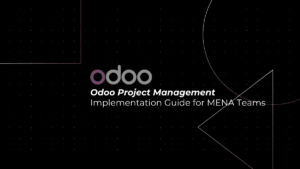
In the rapidly evolving landscape of software development, the concept of digital transformation has brought about profound changes in how organizations approach various aspects of their processes. One area that has witnessed significant transformation is software testing, a crucial phase in ensuring software quality and reliability.
With the integration of artificial intelligence (AI) technologies, software testing has experienced a notable evolution. This article delves into the critical role of AI in quality assurance, exploring how digital transformation is reshaping software testing practices and elevating the overall software development lifecycle.
Table of Contents
ToggleEmbarking on the Path of Digital Transformation: Steps to Success:
Identifying the Right AI Tools
The first step is to evaluate and select AI tools that align with the organization’s software testing requirements and specifications.
Investing in Training and Upskilling
Training the testing team to understand AI concepts and effectively utilize AI-powered testing tools is pivotal to successful implementation.
Adopting a Gradual Approach
Starting with a pilot project allows organizations to assess the effectiveness of AI in their testing processes before committing to full-scale implementation.
Monitoring and Iterating
Continuous monitoring and evaluation of AI-driven testing processes are crucial. Feedback loops should be established to identify areas for improvement and make necessary adjustments.
Understanding the Essence of Digital Transformation in Software Testing:
At its core, digital transformation involves the integration of digital technologies into various aspects of a business. In the context of software testing, this entails embracing AI-driven solutions that revolutionize testing methodologies.
The Evolution of Software Testing:
The conventional approach to software testing entailed manual processes, where testers meticulously evaluated software functionalities to uncover defects and inconsistencies. However, as software systems became increasingly complex and agility emerged as a necessity, the need for efficient and scalable testing methods grew more pronounced. This demand catalyzed the integration of AI and machine learning (ML) into the realm of software testing.
Understanding AI in Quality Assurance:
At its core, AI involves the creation of algorithms and models that imitate human intelligence and behavior. In quality assurance, AI technologies are applied to streamline testing processes, improve accuracy, and enhance the overall efficiency of software development.
AI-driven solutions have the capability to automate complex testing scenarios, generate intelligent test cases, predict defects, monitor performance, and support security.
Benefits of AI in Quality Assurance:
These advantages not only enhance the accuracy and efficiency of testing but also contribute to the overall quality and reliability of software products. Here are some key benefits of utilizing AI in quality assurance:
- Accelerated Testing Processes:
AI-powered automation speeds up testing cycles by enabling the creation of intelligent test scripts that can perform complex scenarios rapidly. This acceleration in testing processes leads to faster identification of defects, reduced time-to-market, and enhanced agility in software development.
- Increased Test Coverage:
AI-driven testing can comprehensively cover a wide array of scenarios that may be challenging to achieve manually. This broader test coverage ensures that software is thoroughly evaluated across diverse usage scenarios, reducing the risk of defects escaping into production.
- Efficient Resource Utilization:
With AI automating repetitive and time-consuming testing tasks, testing teams can allocate their expertise to more intricate aspects of testing. This efficient resource utilization enhances the productivity of testing teams and allows testers to focus on high-value activities.
- Enhanced Accuracy and Consistency:
AI-driven testing is inherently accurate and consistent, minimizing the potential for human errors in repetitive tasks. This reliability contributes to more robust testing outcomes and helps in identifying defects that might be overlooked in manual testing.
- Intelligent Test Case Generation:
AI algorithms can generate test cases based on various parameters, such as code coverage and historical defects. This intelligent test case generation ensures that testing is targeted and relevant, improving the efficiency of the testing process.
Steps to Implement AI in Quality Assurance:
Implementing artificial intelligence (AI) in quality assurance involves a strategic approach that considers the unique needs and goals of the organization. The integration of AI has the potential to revolutionize testing practices, but a well-planned implementation is essential for successful adoption. Here are the key steps to consider when implementing AI in quality assurance:
- Assess Needs and Goals: Identify where AI can add value to testing, aligning with organization’s objectives.
- Select and Integrate Tools: Choose AI tools that fit existing workflows and seamlessly integrate them.
- Data Preparation: Gather and prepare quality data for AI algorithms to learn from.
- Monitor and Adapt: Continuously evaluate AI’s performance, refine strategies, and provide ongoing training.
- Collaboration and Communication: Ensure effective collaboration between testing and development teams, addressing ethical and privacy considerations
AI-Powered Test Automation:
AI-driven test automation represents a groundbreaking leap in software testing. It involves the creation of intelligent test scripts that mimic human interactions with applications. These AI-powered automation tools can perform intricate scenarios, execute tests across diverse devices and platforms, and rapidly identify defects.By automating repetitive tasks and allowing testers to focus on more complex testing scenarios, AI accelerates testing cycles while ensuring broader test coverage.
Furthermore, AI-driven test automation is not constrained by the limitations of human availability or endurance. It can tirelessly execute tests around the clock, enabling quicker identification of defects and ensuring that software products are robust and reliable.
Test Data Generation and Optimization:
AI also plays a pivotal role in generating test data for diverse scenarios. By analyzing historical data and usage patterns, AI algorithms can create relevant and comprehensive test datasets. This ensures that software is tested against a variety of real-world scenarios, contributing to improved software quality.
Navigating Challenges and Making Informed Decisions:
While AI offers transformative potential in quality assurance, its implementation is not devoid of challenges. Organizations need to address concerns such as data privacy, algorithm bias, and the learning curve associated with adopting AI-driven tools. It’s essential to strike a balance between the benefits of AI and the potential challenges to ensure successful integration.
Prioritizing Data Privacy and Security
AI testing tools require access to sensitive data. It’s imperative to ensure that stringent data security measures are in place to prevent any breaches or unauthorized access.
Overcoming Initial Implementation Complexity
Integrating AI into testing processes requires an initial learning curve. Organizations should invest time in training their testing teams and seamlessly incorporating AI tools into their workflow.
Managing Change and Expectations
Adopting AI for software testing involves a cultural shift within organizations. It’s important to manage expectations, communicate the benefits, and provide support during the transition.
Predictive Defect Analysis:
AI-driven predictive analytics has transformed defect analysis. By analyzing historical defect data and development patterns, AI algorithms can predict potential defect-prone areas within the codebase. This proactive approach enables software teams to focus their testing efforts on high-risk sections, thereby improving the effectiveness of testing and reducing the likelihood of critical defects escaping into production.
Predictive defect analysis is a game-changer in terms of resource allocation. Rather than applying a uniform testing effort across the entire codebase, teams can strategically channel resources towards areas with a higher likelihood of issues, resulting in more efficient testing and higher software quality.
Continuous Monitoring and Performance Testing:
AI-powered monitoring tools are enabling continuous monitoring of applications in real-time. These tools can simulate user interactions, analyze performance metrics, and identify bottlenecks or performance degradation. Through AI-driven performance testing, organizations can ensure that their applications meet scalability and performance requirements even under heavy loads.
Continuous monitoring is particularly valuable in identifying issues that emerge due to changing user behavior or unexpected spikes in usage. By closely monitoring application performance and detecting anomalies, organizations can proactively address potential performance bottlenecks before they negatively impact user experience.
Enhanced Security Testing:
In an era marked by heightened cybersecurity concerns, the role of AI in security testing cannot be overstated. Machine learning algorithms can simulate potential cyber attacks, assess the application’s response, and identify vulnerabilities. This proactive security testing approach assists organizations in safeguarding sensitive data and identifying security gaps before they are exploited by malicious actors.
The integration of AI in security testing contributes to the development of more secure software products. By identifying vulnerabilities in advance, organizations can fortify their applications against potential threats, reducing the risk of data breaches and ensuring the protection of both their own interests and those of their customers.
Wrapping it all up, the integration of artificial intelligence (AI) is revolutionizing software testing in the digital transformation era. AI-powered testing enhances efficiency, accuracy, and coverage throughout the software development lifecycle. By utilizing AI for various testing aspects, organizations achieve higher software quality and reliability.
Integrating AI into quality assurance practices is not just a technological advancement; it’s a strategic necessity. Embracing AI accelerates development, reduces costs, and ensures software meets top standards. The symbiosis of AI and quality assurance epitomizes technology’s transformative influence, reshaping practices for innovation and excellence. Thoughtful AI integration propels organizations towards superior software quality and ongoing success in the digital age.
Ready to Embrace the Future of Software Testing? Elevate Your Quality Assurance Processes with AI-Powered Solutions. What are you waiting for? Sign up with PyramidBITS now!




